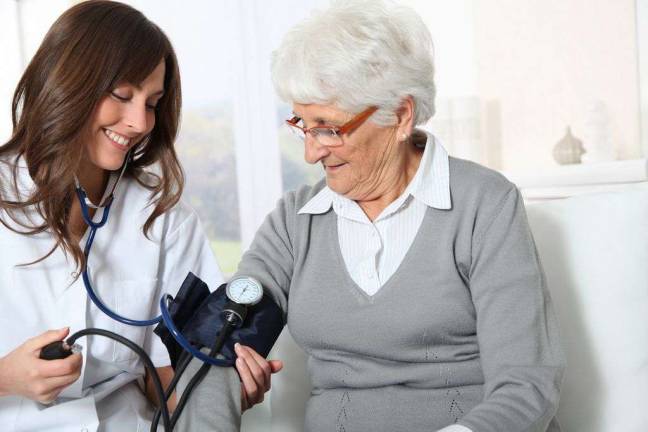A guide to health screenings

When should you begin cancer screenings? How about cholesterol and blood pressure testing?
The answer isn't the same for everyone. Some people have increased risk for certain conditions because of family history or their ethnicity.
But for those of average risk, we have compiled a list of screenings that should be done and when based on recommendations from the American Cancer Society and the Centers for Disease Control and Prevention.
Of course, men and women should discuss their concerns with their primary care doctor who can help guide them based on their individual needs.
Eating right, maintaining a healthy weight, avoiding tobacco products, limiting alcohol and getting regular checkups and screenings are all elements of a healthier life.
For more information on prevention and low cost screenings, go to cancer.org or call 800-227-2345.
Screenings for women
Breast cancer
Age 40 to 44, women should choose whether to begin mammograms (x-rays of the breast)
Age 45 to 54, yearly mammograms
Age 55 and older, continue yearly mammograms or every other year
Cervical cancer
Age 21 to 29, pap test every 3 years
Age 30 to 65, pap test every 5 years
Bone loss
Bone density testing at age 65
Dr. Maithili Rao, MD, a hematologist/oncologist for Atlantic Medical Group and a medical staff member at Hackettstown Medical Center, said routine mammograms allow physicians to see changes in breast tissue from year to year.
“What most women should know is that a mammogram, similar to an x-ray, takes approximately 20 minutes,” said Rao in a statement. “Breast cancers detected early are more likely to be cured and less likely to need extensive treatments such as mastectomy or chemotherapy. Diagnostic mammograms may identify abnormal findings found on previous mammogram studies. Mammograms do not prevent breast cancer, however, they can reduce a woman's chances of dying from breast cancer by almost 30 percent.”
Pap smears, Rao noted, are designed to detect precancerous changes within the cervix.
“These changes can then be further identified and treated before they can evolve into cancer,” said Rao. “Women should meet with their gynecologists regularly to review the personal history and then determine together how often to be screened.”
Screening for men
Prostate cancer
Age 50, prostate specific antigen (PSA) blood test and digital rectal exam after discussing with doctor. Repeat testing depends on your levels.
Age 40 to 45, men at higher risk, including African-American men and those with family history.
Screenings for all
Blood pressure
Age 20, at each regular doctor's visit, at least every two years
Obesity
Age 20, body mass index (BMI) at each regular doctor's visit
Cholesterol
Starting at age 20, at least every five years
Blood glucose (sugar)
Starting at age 45, every three years
Colon cancer
Age 50, every 1 to 10 years depending on the test your doctor uses. Tests include colonoscopy, flexible sigmoidoscopy, guaiac-based fecal occult blood test and others. Earlier for people with a family history or other risk factors after a discussion with their doctor.
Skin cancer
There are no set guidelines; those with a family history or who notice any suspicious moles or spots should talk to their doctor.
Lung cancer
People at high risk for lung cancer, current smokers age 55 to 74 who have a smoking history of 30 pack-years or greater, e.g. smoke an average of one pack of cigarettes for 30 years, two packs for 15 years, etc. or those who have quit within the past 15 years, should discuss low-dose CT scan with their doctor.